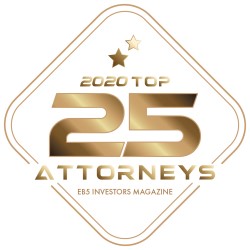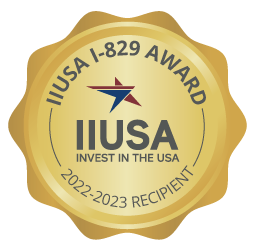Canada has been beset by a tech boom in recent years, with both domestic and foreign tech companies increasing their presence in The Great White North. Nowhere is this more apparent than in Toronto; in 2016, Toronto added more tech jobs than San Francisco and New York City combined[1]. This boom has continued to this day, with 387 total venture capital deal totaling USD $4.7 billion throughout the first three quarters of 2019[2]. However, the explosive growth experienced by Canadian Tech companies is not limited to Toronto; major deals and exits have taken place in Montreal, Calgary, Vancouver, Ottawa, and Newfoundland[3].
As Canadian companies eye expansion, they naturally look toward their southern neighbor. As the world’s largest economy, the United States is a great place to expand your Canadian business while being close to home. One of the big hurdles in expanding to the United States is finding an immigration pathway that fits your needs; many times, our clients are concerned about investing funds into the U.S. operation without having a visa that allows them to take a hands-on role with their company. With the right legal team, the risks can be minimized, and Canadian founders and CEO’s have many options available to them, including the options below.
E-2 Visa: This by far the most popular option for Canadian founders and many startup founders already use the E-2 visa as a double-edged sword, simultaneously investing in their company while obtaining a non-immigrant visa to live and work in the United States. The E-2 visa is a nonimmigrant visa that is available to nationals from certain “treaty countries”; luckily, Canada has the requisite treaty with the United States. The visa requires the investor to invest a “substantial amount” of capital and the business operations must produce more than a “marginal” income; this means that the E-2 enterprise must create jobs for U.S. workers. Canadians can renew this visa indefinitely for a period of five years at a time. This is one of the best options available to Canadians investors, and Canadian consulates have streamlined the process for renewals, requiring minimal documentation. This is also the quickest way for Canadian founders and CEO’s to come to the United States, and most can begin business operations within 3-4 months of contacting an immigration attorney. For more information on the E-2 visa, check out our previous blog post titled “The E-2 Visa Option”[4]. This post addresses the meaning of “substantial investment” and “marginal income”.
L-1A Visa: This nonimmigrant visa is for intracompany transferees working in an executive or managerial position in Canada and looking to transfer to the United States to work in a similar capacity. The requirements of the visa do not call for an investment per se (as with the E-2 and EB-5 visa); however, an investment into your U.S. operation will be necessary to grow your business and maintain your L-1A status. If you have employees that are subordinate to you in Canada, and you are looking to 1) establish an “affiliate” of your Canadian company in the United States, and 2) work in an executive and managerial capacity once in the United States, this is the best option for you. The L-1A has dual intent, meaning it opens the door for the EB-1C visa, which is a great option if you are looking for a green card down the road. This tends to be the best options for those who have established companies in Canada and are looking to expand their U.S. footprint.
EB-5 Visa: The EB-5 is an investor visa that leads directly to a green card. The new regulations enacted on November 21, 2019 raised the minimum EB-5 investment from $500,000 to $900,000[5]; however, the job creation requirements remain the same (10 jobs must be created per investor). The EB-5 visa is usually pertinent to founders in two circumstances. The first is when a founder on an E-2 visa ends up investing enough funds into their startup to qualify for an EB-5 visa. A second option is an outside investor investing into an existing startup; this can be option for companies that are willing to give up equity in exchange for a relatively large investment. Given the new regulations, we may see an increase in EB-5 investment used for Series A funding.
Options for Employees of Tech Companies in Canada: If you are a Canadian tech worker with a bachelor’s degree (or higher), your options include the H-1B and TN visa[6]. The L-1B Visa is another option and is reserved for employees who are deemed to posses “specialized knowledge”. All three of these options provide pathways to a green card via PERM Labor Certification.
If
you own a Canadian company and you are looking to expand to the United States,
contact the immigration professionals at Darren Silver & Associates.
We have extensive experience with Canadian tech companies, and we have dealt
with consulates throughout Canada. Our team will help you find the pathway that
fits you best and ensure that your company structure fits both your needs and
the immigration requirements of the United States, and our past clients include
both established multi-national companies and startups in their nascent stages.
[1] https://capx.co/the-open-secret-to-canadas-tech-boom/
[2] https://news.crunchbase.com/news/canada-is-having-a-record-year-for-vc-funding/
[3] Verafin, out of Newfoundland, raised USD $385 million this past year.
[4] https://darrensilver.com/the-e-2-visa-option/
[5] https://darrensilver.com/the-new-eb-5-regulations-the-good-the-bad-the-unknown/
[6] While the TN visa does not require a bachelor’s degree, the Beneficiary of the visa must posses “the qualifications needed to practice the profession in question”.







